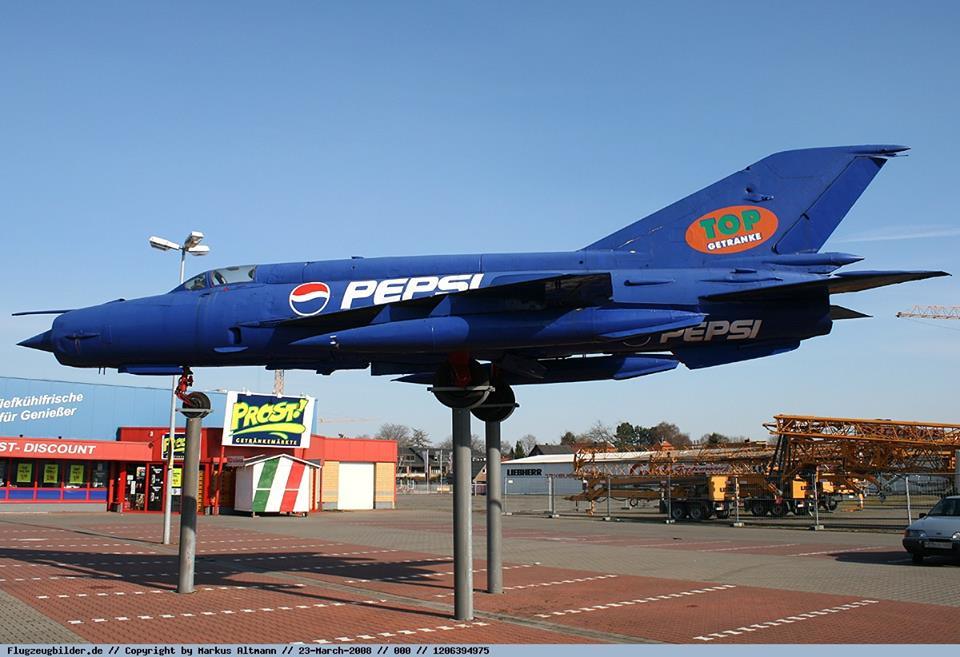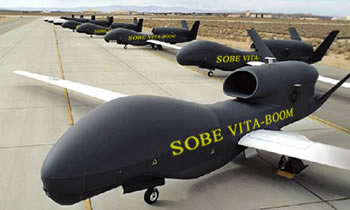FOREIGN AFFAIRS; Soviets Buy American
By FLORA LEWISMAY 10, 1989

May 10, 1989, Page 00035 The New York Times Archives
Donald M. Kendall chuckles about his gibe at Brent Scowcroft. ''We're disarming the Soviet Union faster than you are,'' the head of Pepsico told President Bush's national security adviser.
Pepsico recently bought from the Soviets 17 submarines (for a measly $150,000 each), a cruiser, a frigate and a destroyer. They are being resold for scrap. It has also bought new Soviet tankers (to carry oil, not beverages) in a joint venture with the Soviets and a Norwegian company that will lease them out or sell them.
These peculiar ventures for a soft drink company are a necessary way for it to do business with Moscow. Pepsi has 21 plants in the Soviet Union and wants to open 26 more. The problem, as in most deals with the Soviets, is how to get the money out.
A cheery, white-haired, extravagantly energetic 68-year-old, Mr. Kendall is also a truly imaginative businessman. In 1959 he set up a stand at the American exhibition in Moscow. Nearby was a kitchen equipment stand, where Nikita Khrushchev and Vice President Richard Nixon got into a famous debate.
It was literally, as well as figuratively, heated. When Mr. Kendall noticed the Soviet leader wiping his brow, he rushed over with a nice cold Pepsi and was rewarded with a unique, unpaid commercial for his product, published round the world. Mr. Kendall followed up with a deal obtaining exclusive rights to the Soviet market in return for exclusive distribution rights for Stolichnaya vodka in the U.S.
But the American vodka market has limits. So later Mr. Kendall began looking for other Soviet products he could sell to remit Pepsi's ruble earnings. Thus the tanker and the castoff fleet. The Pepsi monopoly in a vast country has given heartburn to the Coca-Cola people. In what he calls ''the cola wars,'' the international lawyer Sam Pisar got special rights for Coca-Cola to supply the 1980 Moscow Olympics, as it had every Olympics since 1924. But it refrained because of the American embargo on the Games after the invasion of Afghanistan.
Since then, Coca-Cola has introduced some other lines to the Russians, such as Fanta and Minute Maid, with special deals for repayment. But real ''Coke'' can still only be bought in special hard-currency stores for foreigners.
Coca-Cola's resentment may explain a recent nasty column by William Buckley, normally no enemy of business initiative, wondering if Mr. Kendall ''has put in for Pepsi concessions in the gulag'' and noting tartly that ''as sales of Pepsi mounted, so did the creation of nuclear missiles'' in the Soviet Union. It takes a lot of fantasy to make an American soft drink responsible for Soviet forced labor and atomic weapons.
On the contrary, it would seem that winning Russian gullets, and maybe hearts and minds, with American consumer products is all to the good for both sides. Apart from specific goods with military applications, it makes no sense to brand trade with the Soviets as some kind of greedy treachery.
The real issue, illuminated by Mr. Kendall's experience, is that it is so hard for Western suppliers andinvestors to get paid. That is Mr. Gorbachev's main problem in attracting foreign credits, which incidentally remain much lower than the billions an-nounced because businessmen haven't taken up the credit offers.
Ironically, Western governments, which were leery when their businessmen were excited about prospects of big deals with the Soviets in the early 1970's, are now trying to encourage trade on a much more reluctant private sector. According to a senior Japanese economic official, it isn't just that inflated hopes brought disillusion and some losses during that round of detente. Trade has changed.
Japanese industrialists are no longer willing to make the huge investments discussed in the Brezhnev era in return for future guaranteed supplies of raw materials. Now they know the only guarantee they need for raw materials is ready money. They are looking for upscale markets. West Germans say much the same applies to them, and they aren't signing up in droves.
An American involved said the Soviets wanted foreigners to produce goods for export from their country, which isn't attractive in competition with third-world offers to investors. The businessmen want access to a Soviet market that pays.
So whatever the political-military climate, it will be a long time before East-West economic exchange becomes really important. Meanwhile, carting off excess arms for Pepsi isn't a bad way to help perestroika and improve Russian humors.
Source https://www.nytimes.com/1989/05/10/opinion/foreign-affairs-soviets-buy-american.html
Pepsico security guards
The first Pepsico military plane on display

PepsiCo recruitment poster for chinese contractors

A recruitment campaign aimed at US veterans.

The first Pepsico military plane on display

PepsiCo recruitment poster for chinese contractors

A recruitment campaign aimed at US veterans.

What would happen if PepsiCo decided to become a private military company, keeping its fleet, buying more soviet weaponry and seizing the opportunities of the power vacuum at the end of Soviet Union to work as military contractors and arms dealers from Russia?
Last edited:
